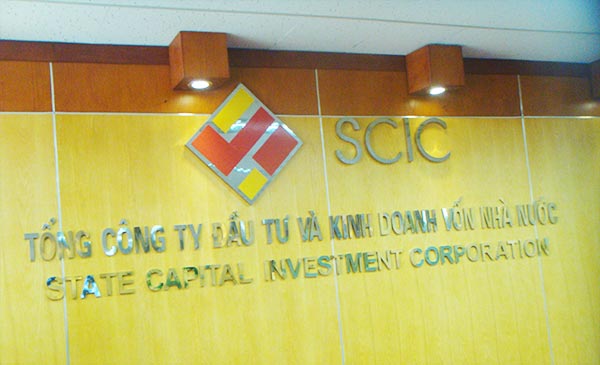SCIC seeking to boost state capital divestiture efficiency

Photo Manh Bon
SCIC was formed in 2005 as a state-owned fund with the particular aim to assist state enterprises. According to statistics provided by the corporation, since its debut it has divested VND3.15 trillion ($147 million) worth in state capital at 678 state-owned enterprises (SOEs).
By its activity, it has managed to collect VND7.2 trillion ($336 million) back into state coffers, which is 2.3 times higher than the original value compared to the country’s average level of 1.48 times.
The SCIC leadership has attributed their success partly to the state allowing them to apply flexible capital divestiture measures.
“The stock face value is VND10,000 (46 US cents). If a business incurred losses and its equity is lower than the capital amount contributed by shareholders, we were allowed to sell below par value which has greatly facilitated the process,” said Hoang Nguyen Hoc, SCIC’s deputy general director.
Similarly, the right of SCIC to divest all state capital held in SOEs where state proprietorship was not necessary has also generated efficiency.
“In such cases, investors are often willing to pay more than at public auction sales,” Hoc commented.
The SCIC, however, stated that in the first quarter of this year it could only divest VND253 billion ($11.8 million) worth in state capital at 22 SOEs, earning VND844 billion ($39.4 million).
In light of the government approved SOE restructuring plan, by the end of the year SCIC would need to carry out divestment plans at around 300 businesses, besides to other tasks the company might be given to handle this year .
To achieve this ambitious goal, according to Hoc, the SCIC would require additional measures besides the existing ones.
In this regard, the SCIC has requested government extension of the right to sell stocks in whole. By their request the right would also involve unlisted public companies.
“This move is to appeal to investors, as in fact a large share volume of many unlisted public companies is kept by individual investors, some of whom are a few percentage short of corporate management roles. This leaves the SCIC in a difficult position to sell the remaining stock in part,” Hoc argued.
What the stars mean:
★ Poor ★ ★ Promising ★★★ Good ★★★★ Very good ★★★★★ Exceptional
Latest News
More News
- State corporations poised to drive 2026 growth (February 03, 2026 | 13:58)
- Why high-tech talent will define Vietnam’s growth (February 02, 2026 | 10:47)
- FMCG resilience amid varying storms (February 02, 2026 | 10:00)
- Customs reforms strengthen business confidence, support trade growth (February 01, 2026 | 08:20)
- Vietnam and US to launch sixth trade negotiation round (January 30, 2026 | 15:19)
- Digital publishing emerges as key growth driver in Vietnam (January 30, 2026 | 10:59)
- EVN signs key contract for Tri An hydropower expansion (January 30, 2026 | 10:57)
- Vietnam to lead trade growth in ASEAN (January 29, 2026 | 15:08)
- Carlsberg Vietnam delivers Lunar New Year support in central region (January 28, 2026 | 17:19)
- TikTok penalised $35,000 in Vietnam for consumer protection violations (January 28, 2026 | 17:15)
















 Mobile Version
Mobile Version